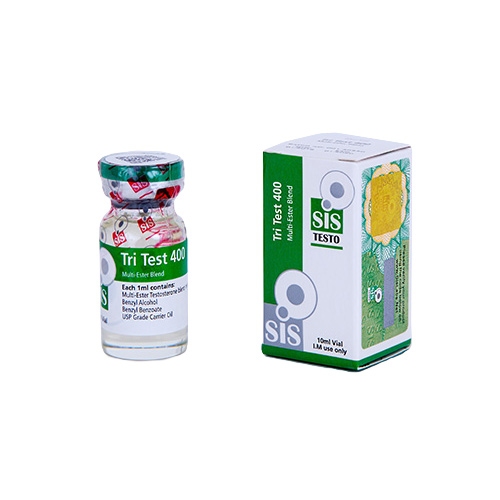
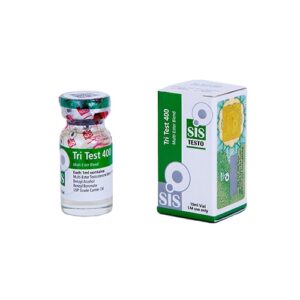
Buy TRI TEST 400 Online
$42.91
ACTIVE SUBSTANCE: TESTOSTERONE CYPIONATE, TESTOSTERONE DECANOATE, TESTOSTERONE ENANTHATE
FORM: 10 ML X 400 MG/ML
MANUFACTURER: SIS LABS

Buy TRI TEST 400 Online
$42.91
- Description
- Reviews (0)
Description
Description: TRI TEST 400 is a medication formulated as an injectable solution. It is a testosterone blend consisting of three different testosterone esters: testosterone cypionate, testosterone decanoate, and testosterone enanthate. This combination provides a rapid onset of action and sustained release of testosterone, making it suitable for testosterone replacement therapy (TRT) or performance enhancement purposes.
Uses: TRI TEST 400 is primarily used for testosterone replacement therapy (TRT) in men with hypogonadism (low testosterone levels) or androgen deficiency. It may also be used for performance enhancement purposes by athletes or bodybuilders seeking to increase muscle mass, strength, and endurance.
How to Use: TRI TEST 400 is administered via intramuscular injection. The dosage and frequency of administration depend on the individual patient’s medical condition, testosterone levels, and response to treatment. Administration should be performed by a healthcare professional according to proper injection techniques.
Storage Conditions: TRI TEST 400 vials should be stored at room temperature, away from moisture, heat, and direct sunlight. It is important to keep the medication out of reach of children and pets.
Mechanism of Action: TRI TEST 400 provides a rapid onset of action and sustained release of testosterone due to the combination of different esters with varying half-lives. After injection, testosterone levels rise quickly and remain elevated for an extended period, promoting anabolic effects such as increased muscle mass, strength, and recovery.
Precautions:
- Patients with a history of prostate cancer, breast cancer, or cardiovascular disease should use TRI TEST 400 cautiously and under the supervision of a healthcare provider.
- Regular monitoring of testosterone levels and clinical response is important during treatment.
Contraindications: TRI TEST 400 is contraindicated in individuals with hypersensitivity to testosterone or any component of the formulation. It should not be used in women, particularly pregnant or breastfeeding women, due to the risk of masculinization and potential harm to the fetus or nursing infant.
Drug Interactions: TRI TEST 400 may interact with certain medications, particularly anticoagulants, insulin, and oral hypoglycemic agents. Patients should inform their healthcare provider about all medications they are taking to avoid potential interactions.
Side Effects: Common side effects of TRI TEST 400 may include acne, oily skin, hair loss, increased body hair growth, and mood changes. Other potential side effects include fluid retention, gynecomastia (enlarged breast tissue in men), and changes in libido. Serious adverse reactions such as liver toxicity, cardiovascular events, and prostate enlargement may occur but are rare.
Patients should consult their healthcare provider for personalized advice and information regarding TRI TEST 400, including its uses, dosage, and potential side effects.
Be the first to review “Buy TRI TEST 400 Online” Cancel reply
Related Products
Buy PROPIONAT 100 (TESTOSTERONE PROPIONATE) Online
Total Sales: 0
SKU: 853441
Buy SUSTA 350 10ml VIAL - PARA PHARMA Online
Total Sales: 0
SKU: 999517
Buy SUSTANON 250 10ml VIAL - SIS LABS Online
Total Sales: 0
SKU: 959487
Buy TESTO P (TESTOSTERONE PROPIONATE) Online
Total Sales: 0
SKU: 814228
Buy TESTO-PROP 100 (TESTOSTERONE PROPIONATE) Online
Total Sales: 0
SKU: 266197


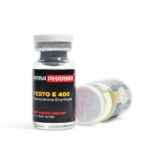
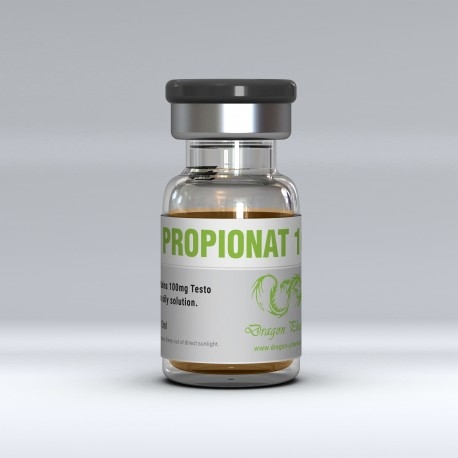

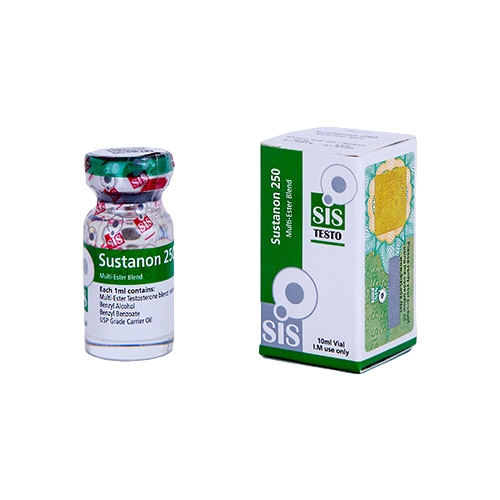
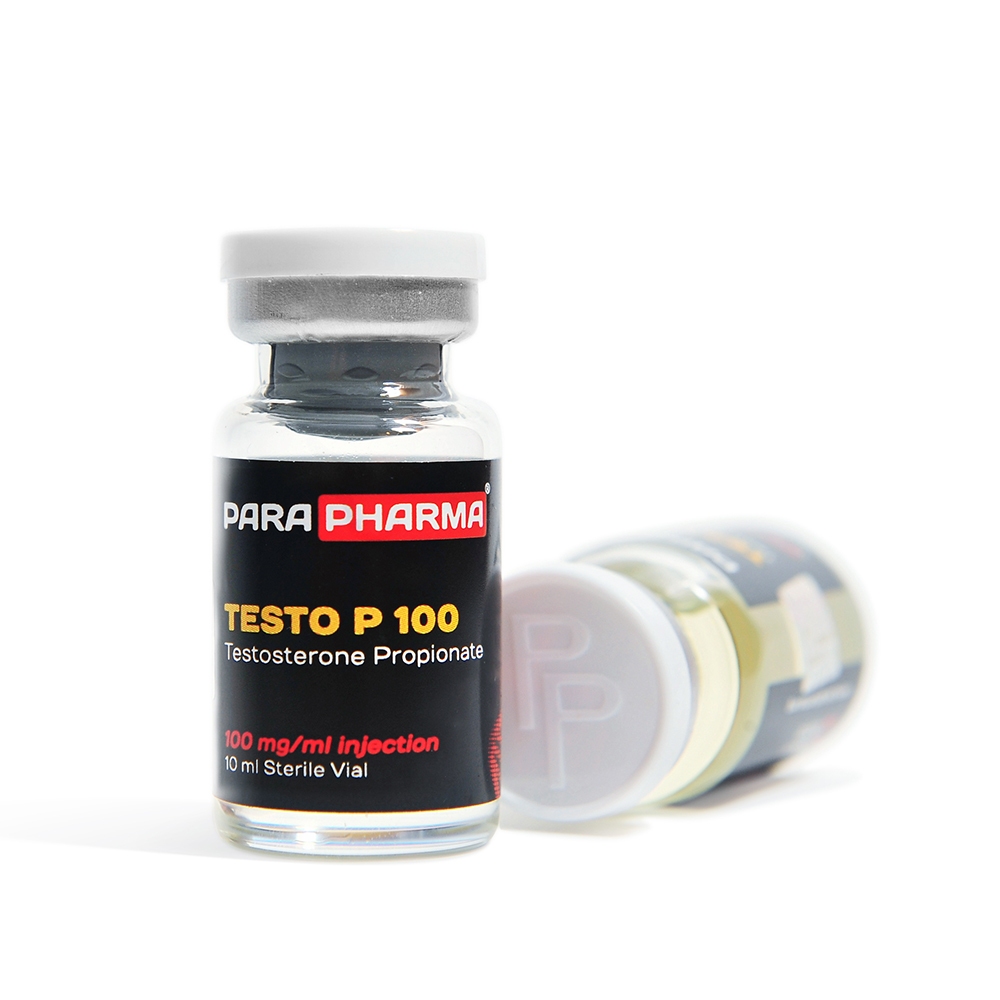
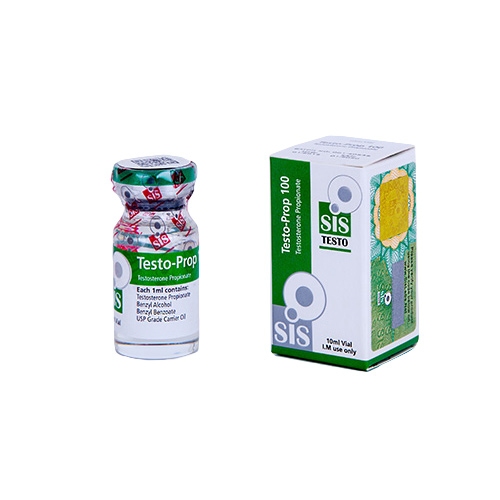
Reviews
There are no reviews yet.